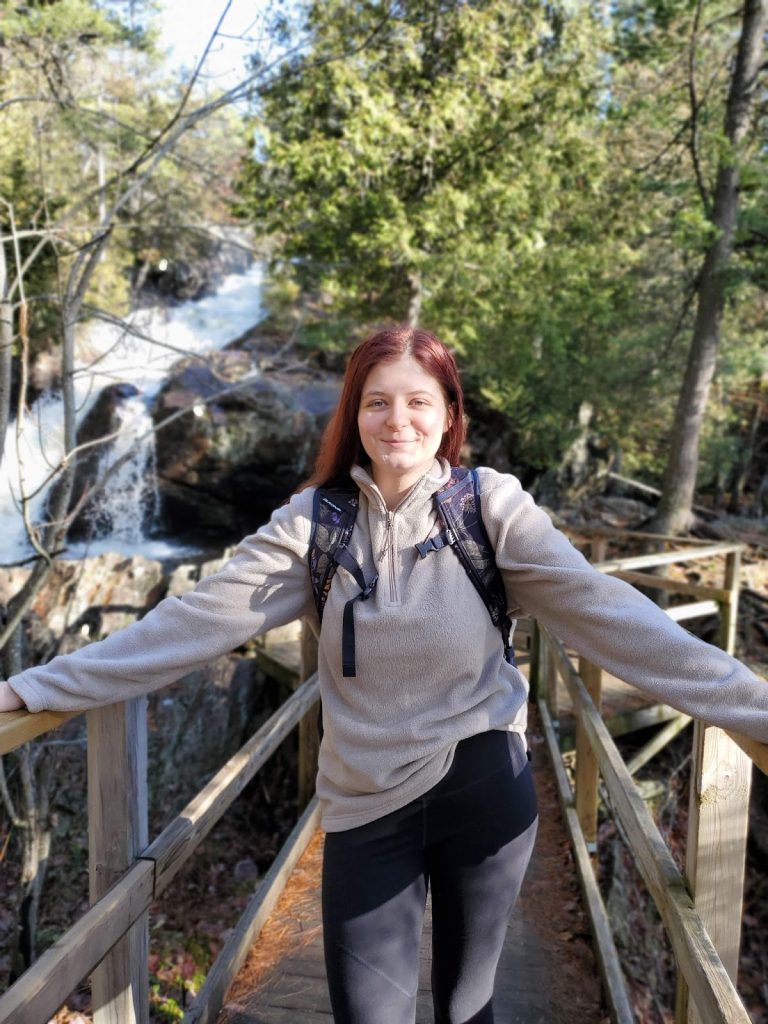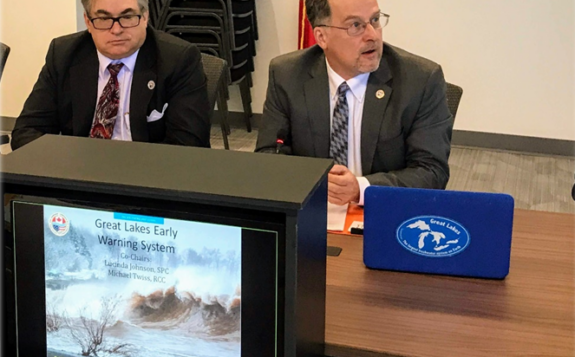Kelly Balfour (BSc ‘20) is one of our newest alumni, graduating with a Bachelor of Science in Biology just last year. Originally from Richmond Hill, Ontario, Kelly came to Algoma University in 2016. As she moved forward with her degree at Algoma U, it became home for her.

“We form a close knit community at Algoma, and that community has been here for me every step of the way; from starting my undergraduate thesis projects, to my acceptance into Queen’s University, to my successful application for a Canada Graduate Scholarship (CGS M) grant this year”. She mentions the incredible mentors at Algoma who encouraged her to put herself out there, including Algoma U biology professor, Dr. Brandon Schamp.
Kelly is now working on her Master’s of Science in Biology at Queen’s University in Kingston, Ontario. She is co-supervised by Dr. Schamp and Dr. Lonnie Aarssen, from Queen’s University, who have a long standing career of working together.
“Walking through a forest, you’ve probably noticed that the overhead canopy casts a lot of shade”, Kelly explains about her current research. “Large trees can intercept a lot of sunlight, avoiding shading themselves while limiting the amount of light reaching smaller plant species. Herbaceous community canopies (e.g. in grasslands and old fields) also limit the amount of light reaching smaller species. In fact, our recent work indicates that this shading is comparable to that of forest canopies.
Despite the perceived advantage that large plants have in competition for light, small plants remain abundant and ubiquitous. So why are there so many small plants? This question is a major topic of research in our lab, with my MSc thesis project exploring whether short plant species in herbaceous vegetation are more ‘shade tolerant’.
In forests, some small plant species have been found to exhibit shade tolerance, which allows them to survive under low light. In herbaceous vegetation, both light penetration and shade tolerance are understudied, especially under natural, or non-experimental conditions. This summer, we’ll be collecting data from fields at the Queen’s University Biological Station, measuring plant traits commonly associated with shade tolerance. Ultimately, our results will indicate whether shade tolerance can help to explain the perplexing prevalence of small plants.”
After applying for a CGS M grant last year, Kelly was recently offered an Alexander Graham Bell Canada Graduate Scholarship from the Natural Sciences and Engineering Research Council of Canada (NSERC). This particular program provides financial awards to high-calibre scholars demonstrating a superior standard of achievement in their studies and is assessed by academic excellence, research potential, personal characteristics and interpersonal skills. In addition to receiving this prestigious federal award, this scholarship provides funding for Kelly’s MSc thesis project, titled “Are shorter species in herbaceous vegetation more shade-tolerant?”
When asked if she had any advice for current undergraduate students looking to pursue a Master’s degree or career in research, Kelly shared:
“As a researcher, you essentially ask questions about the world around you and look for reasonable answers. But research is a vast career space; you’re not limited to any one subject. In addition to the variety and challenges of the work, which always keeps you on your toes, it provides so many opportunities for growth and exploration. You can spend the summer hiking through the forest, grow bacteria in a lab, listen to bird calls, or learn how to code. I didn’t know what to expect when I joined Dr. Schamp’s lab, but over the past two years I’ve gained invaluable experience and skills, unique memories and stories, and a truly incredible lab family. I think research and graduate school can be intimidating pursuits, they certainly were to me, but working with this team gave me the confidence and capability to succeed. If you are wondering whether this is the right path for you, I encourage you to give it a chance and put yourself out there. Whether you’re looking for experience, mentorship, or something fun to do in your free time – you’re only an email away!”
If you are an Algoma University alumnus and have a story that you’d like to share with us, please let us know by emailing Hilary Prouse, Administrative Assistant for the Alumni & Advancement Office, at [email protected].
Share Article




